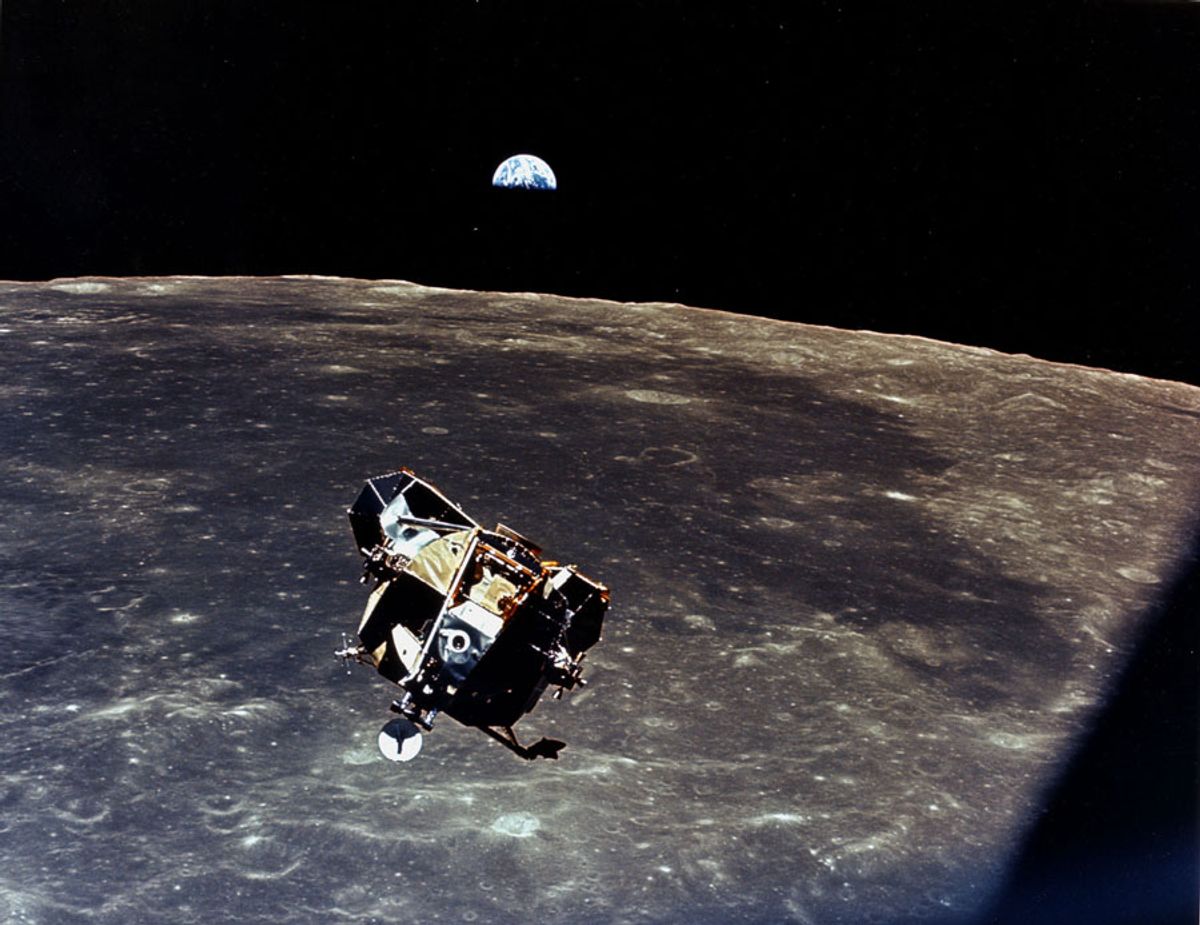Lee de Forest (1873-1961) was an inventor who made significant contributions to the field of electronic communications. His key work in the areas of wireless telegraphy, broadcast radio, and synchronized-sound films led to his being referred to as the "Father of Radio" and the "Father of Electronics."
But de Forest is also known, in a lesser sense, for famously demonstrating that persons notable for achievements in one field of science aren't necessarily reliable prognosticators about other scientific fields. For it was de Forest who boldly proclaimed in the 1950s that humanity's sending a man to the moon and returning him to Earth alive was merely a Jules Verne-esque fantasy, a "voyage [that] will never occur regardless of all future scientific advances."
He made his remarks during an interview with Voice of America radio, as reported by the Associated Press in February 1957:
One of America's most famous scientists dismissed as impossible one of modern science's most persistent dreams — the dream of travel into the outer space.
Dr. Lee De Forest, known as the "Father of Electronics," predicted that man would never even reach the moon, let alone travel by rocket ship to strange worlds in distant galaxies.
"Man," declared Dr. De Forest, "is inherently an earthly creature, and only his scientific imagination will ever make him a planetary emigrant."
De Forest invented the vacuum tube 51 years ago, and that made possible the development of modern radio broadcasting, television and radar.
His observations on the future were broadcast by the Voice of America, the State Dept.'s overseas information program.
De Forest forecast transoceanic television within 10 years. He said this could be accomplished by skillful location of relay stations and by taking advantage of reflections of television waves from the ionosphere, the layer of electrical energy which surrounds the earth at a great height. "But I am much more conservative in my estimate of interspace flight," De Forest said.
True, this year may become known as the year of the first man-made planet — the tiny artificial earth satellite, he said.
"But to place a man in a multi-stage rocket and project him into the controlling gravitational field of the moon, where the passenger can make scientific observations, perhaps land alive, and then return to earth — all that constitutes a wild dream worthy of Jules Verne," he said, adding:
"I am bold enough to say that such a man-made moon voyage will never occur regardless of all future scientific advances."
That was not the first of de Forest's pronouncements along such lines. In an article for Popular Mechanics published five years earlier, the scientist had asserted: "I do not foresee 'spaceships' to the moon or Mars. Mortals must live and die on Earth or within its atmosphere!"
However, de Forest was at least correct in anticipating the first "artificial earth satellite" would be launched in 1957, as the Soviet Union put Sputnik I into low Earth orbit on Oct. 4, 1957. The Soviets also accomplished the first manned space flight less than four years later, launching cosmonaut Yuri Gagarin in Vostok 1 for a single Earth orbit on April 12, 1961.
But it only took the United States to prove de Forest wrong with the July 1969 mission of Apollo 11 that landed astronauts Neil Armstrong and Buzz Aldrin on the moon and then returned them safely to Earth.

